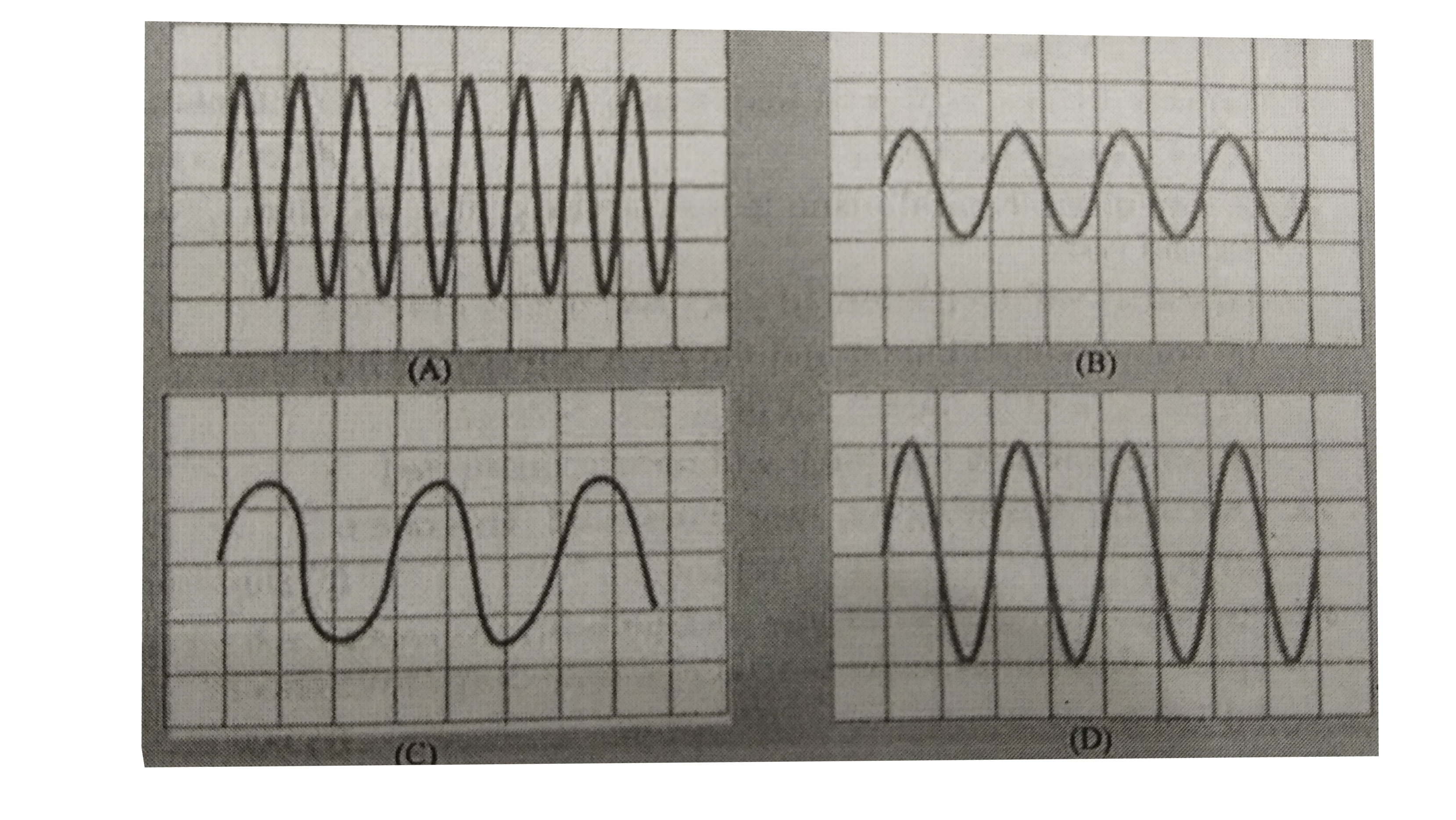A vibrating body
will always produce sound
may or may not produce sound if the amplitude of vibration is low
will produce sound which depends upon frequency
none of these
The correct Answer is:A
To answer the question about a vibrating body and its ability to produce sound, let's analyze the options step by step.
Step 1: Understanding Vibrating Bodies
A vibrating body is any object that oscillates or moves back and forth. When an object vibrates, it creates pressure waves in the surrounding medium (like air), which we perceive as sound.
Step 2: Analyzing the Options
1. Option 1: A vibrating body will always produce sound.
- This statement implies that any vibration will result in audible sound. However, this is not entirely accurate because the amplitude and frequency of the vibrations play a crucial role in sound production.
2. Option 2: A vibrating body may or may not produce sound if the amplitude of vibration is low.
- This option suggests that if the vibrations are too small (low amplitude), they may not generate sound that we can hear. This is true, as low amplitude vibrations may not create sufficient pressure waves to be perceived as sound.
3. Option 3: A vibrating body will produce sound which depends upon frequency.
- This statement indicates that the frequency of the vibrations affects the sound produced. Higher frequency vibrations can produce higher-pitched sounds, while lower frequencies produce lower-pitched sounds. This is also true, as sound perception is closely linked to frequency.
4. Option 4: None of this.
- This option suggests that all previous statements are incorrect, which is not the case.
Step 3: Conclusion
Based on the analysis of the options:
- Option 1 is not completely accurate.
- Option 2 is true, as low amplitude vibrations may not produce audible sound.
- Option 3 is also true, as the frequency of vibrations affects the sound produced.
- Option 4 is incorrect.
Thus, the best answer is that a vibrating body may or may not produce sound if the amplitude of vibration is low (Option 2) and that the sound produced depends on frequency (Option 3).
Final Answer
The correct options are Option 2 and Option 3.
---
A vibrating body is any object that oscillates or moves back and forth. When an object vibrates, it creates pressure waves in the surrounding medium (like air), which we perceive as sound.
1. Option 1: A vibrating body will always produce sound.
- This statement implies that any vibration will result in audible sound. However, this is not entirely accurate because the amplitude and frequency of the vibrations play a crucial role in sound production.
- This option suggests that if the vibrations are too small (low amplitude), they may not generate sound that we can hear. This is true, as low amplitude vibrations may not create sufficient pressure waves to be perceived as sound.
- This statement indicates that the frequency of the vibrations affects the sound produced. Higher frequency vibrations can produce higher-pitched sounds, while lower frequencies produce lower-pitched sounds. This is also true, as sound perception is closely linked to frequency.
- This option suggests that all previous statements are incorrect, which is not the case.
Based on the analysis of the options:
- Option 1 is not completely accurate.
- Option 2 is true, as low amplitude vibrations may not produce audible sound.
- Option 3 is also true, as the frequency of vibrations affects the sound produced.
- Option 4 is incorrect.
The correct options are Option 2 and Option 3.
Topper's Solved these Questions
- SOUND BOOK - MTG IIT JEE FOUNDATIONCHAPTER - SOUND EXERCISE - EXERCISE (MULTIPLE CHOICE QUESTIONS) (LEVEL - 2)
20 Videos
- SOUND BOOK - MTG IIT JEE FOUNDATIONCHAPTER - SOUND EXERCISE - EXERCISE (Match the following)
5 Videos
- SOUND BOOK - MTG IIT JEE FOUNDATIONCHAPTER - SOUND EXERCISE - NCERT SECTION
13 Videos
- SOME NATURAL PHENOMENABOOK - MTG IIT JEE FOUNDATIONCHAPTER - SOME NATURAL PHENOMENAEXERCISE - Olympaid/HOTS Corner
10 Videos
- STARS AND THE SOLAR SYSTEM BOOK - MTG IIT JEE FOUNDATIONCHAPTER - STARS AND THE SOLAR SYSTEM EXERCISE - Olympiad/HOTS Corner
15 Videos
Similar Questions
Knowledge Check
The vibrating body while playing a violin is
AwireBthe box of the violinCboth wire and boxDonly airThe pitch of sound depends on
AamplitudeBfrequencyCnoiseDthe medium of propagationLoudness of sound increases by
(i) The amplitude of vibrating body.
(ii) The increase in surface area of vibrating body.
(iii) The decrease in frequency of vibrating body.
(iV) The increase in distance from the source of sound.A(i) and (ii) onlyB(i) and (iv) onlyC(ii) and (i) onlyD(vi) and (i) only
Consider the following sound waves marked A,B, C and D:
(a) Which two waves represent sounds of the same loudness but different pitch?
(b) Which two waves represent sounds of the same frequency but different loudness?
(c) State whether all these sound waves have been produced by the same vibrating body or different vibrating bodies?
(d) Which vibrating body/bodies could have generated the sound waves shown here?

View SolutionAssertion : Every vibrating body is a source of sound.
Reason : All sounds are audible to us.
View SolutionAssertion (A): The loudness of sound produced by the vibrating body can be increased. Reason
(R): The loudness of sound by the vibrating body depends on the amplitude of vibration and also the surface area.
View SolutionPASSAGE-II: The number of oscillations or vibrations made by a vibrating body in one second is known as the frequency of the wave. The S.I. unit of frequency is hertz (Hz) which is named after the name of scientist Heinrich Hertz.
Time taken to complete one vibration by the vibrating body is known as time period. Time period and frequency are related as
Time periode=1frequency
A vibrating body vibrates 200 times in 5 second, calculate its frequency?
View SolutionAssertion : Every vibrating body is a source of sound.
Reason : All sounds are audible to us.
View Solution
